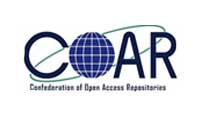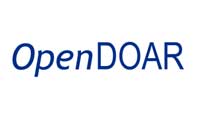VUT DigiResearch
Digiresearch is the VUT electronic open access archive. Its purpose is to collect, distribute and preserve the research performed by the VUT Research community
Slide 1 of 11 

Slide 2 of 11 

Slide 3 of 11 

Slide 4 of 11 

Slide 5 of 11 

Slide 6 of 11 

Slide 7 of 11 

Slide 8 of 11 

Slide 9 of 11 

Slide 10 of 11 

Slide 11 of 11 

Communities in DigiResearch
Select a community to browse its collections.
- Inaugural addresses, Presentations etc.
Recent Submissions
Perceptions on 'free' tertiary education and operational budgeting within a public university
(Vaal University of Technology, 2022-07) Tewe, Remilekun Felix; Siewe, L.; Beneke, J. B., Dr.
A series of strikes by public university students protesting the exorbitant cost of tertiary education across South Africa, a country where extreme poverty is pervasive, brought the entire country to a virtual standstill in 2015 and set the stage for government to be coerced into implementing a ‘free’ tertiary education policy that it neither planned nor prepared for. The result is that, since then, universities across the country have struggled greatly to meet their financial needs. The taxation rates have being increased, and thus government must protect the monetary space to support their plans in upcoming years. This implies that any financing activated by the government to support the financial difficulties in tertiary education must be re-prioritized from other government programmes. Therefore, what should the universities’ management do to strike a harmony between budget cuts from the government as result of ‘free’ tertiary education implementation, inflationary increment of operational expenses and ‘free’ tertiary education? The primary objective of this study is to examine the perceptions of Heads of Department, and Director of directorates on ‘free’ tertiary education in relation to operational budgeting within a public university in the Gauteng province.
The study embraced critical realism as its research paradigm as per a qualitative research approach, using semi-structured interviews to address the empirical objectives and a narrative literature review method to engage with the theoretical objectives of the study. The findings of the study reveal that participants welcome ‘free’ tertiary education as a system but are sceptical about its sustainability. This is because the government of South Africa failed to conduct a proper feasibility study on how to raise the funds needed to make the model work. The participants also specified that implementation of ‘free’ tertiary education in a developing economy such as South Africa will have a range of negative effects and will increase the financial burden on taxpayers. Thus, there is a need for the public university’s management studied to cultivate a sound and irrepressible monetary policy that can guarantee sustainable academic programmes and operations at the university. The study also contributed to the existing body of knowledge in the field by establishing that inevitable budget cuts by the government could lead to cost-cutting, compelling universities to reduce academic programmes offered, regardless of the significance of such programmes for national development in South Africa.
The study recommends ways of generating additional income to cushion the negative effects of consistent budget reductions in subsidies to public universities as result of difficult economic conditions in the country.
Perceived organisational support, job satisfaction and organisational citizenship behaviour of South African Police Service officials in the Tygerberg Cluster
(Vaal University of Technology, 2016-06) Van Tonder, Eugenie Olive; Joubert, P. A., Dr.; Grobler, B. R., Prof.
The current research study is premised on theoretical frameworks that are embedded in different human behaviour studies, which have been conducted by researchers in the past. The different theories underlying the research will be discussed.
No previous studies could be found relating to Organisational Citizenship Behaviour (OCD), Perceived Organisational Support (POS) and Job Satisfaction (JS), in the SAPS. This study aims to provide a more complete picture of the OCB, JS and POS within the SAPS and contribute towards cultivating a more professional corps of SAPS officials.
In this study, a quantitative and descriptive research method was used to investigate a sample size of 300 police officials working at police stations in the Tygerberg Cluster SAPS. All police officials in the Tygerberg Cluster of the SAPS formed part of the target population. These police officials are appointed under the SAPS Act (68 of 1995). Data were collected with the aid of a structured questionnaire. The reliability and validity were increased by conducting a pre-test and a pilot study prior to the final study. A factor analytic procedure was followed for each of the three constructs. The results of the correlation analysis revealed a negative relationship between POS and OCB and between JS and OCB. The data, however, indicated positive correlations between JS and POS.
Findings and recommendations in this study are important to government, SAPS, individual members and commanders as it provides information regarding types of activities and interventions to enhance perceived organizational support, job satisfaction and behaviours associated with organizational citizenship.
Dynamic capabilities as determinants of supply chain performance in small to medium enterprises in the Vaal region
(Vaal University of Technology, 2017-10) Lavhelani, Phathutshedzo David; Chinomona, E., Dr.; Omuruyi, O., Dr.
The study investigated dynamic capabilities as determinants of supply chain performance in small to medium enterprises in the Vaal region. The study contributed to the body of knowledge addressing dynamic capabilities as determinants of supply chain performance in small to medium enterprises. The study developed a model with five hypotheses and was empirically tested. Following a positivist research paradigm, a quantitative approach as a research strategy was employed to test the proposal conceptual model. A survey was conducted with 288 participants in Vaal region using aprobability strastified sampling method to identify the respondents fitting the predetermined sample criteria. A self-administered survey was followed as a method of data collection. Topical areas, research methods and data acquiring procedures were described.
Permission was sought from SME owners. Sample data from SME owners/managers in the retail, mining, construction, tourism, transport, finance / insurance, community/ personal service, manufacturing and other businesses within Southern Gauteng, specifically in the Vaal Region were collected for the final data analysis of this study. The researcher used the Statistical Package for the Social Sciences (SPSS version 23.0) to analyse data. The sample data were analysed by performing a confirmatory factor analysis (CFA) and structual equation modelling (SEM) using the AMOS 23.0 statistical analysis software. The principal finding of this study reveals that dynamic capabilities, relationship longevity and service quality have an impact on supply chain performance. The conclusions and implications of the research findings are provided, and recommendations are suggested.
Exploring water usage practices of kitchen staff in restaurants in the Vaal Region
(Vaal University of Technology, 2019-10) Van der Merwe, Etresia; Oosthuizen, D., Dr.; Dicks, E. G., Prof.
The tourism and hospitality industry uses vast amounts of water during general household activities and food service, food preparation, cooking, cleaning, and other kitchen duties. In addition, over the past years, water usage has increased due to the growth in the population, technology, lifestyle changes, and the increasing demand of the tourism and hospitality industry. It is evident that the demand for clean fresh water is growing immensely and saving water by all organisations can contribute to conserving water for future use. This study involves exploring water usage management practices of kitchen staff in restaurants in the Vaal region. Therefore, the research question was, what are the employee habits and/or practices regarding wasting as well as saving water in restaurants?
A qualitative observational design was used during this research study. Ethical clearance was obtained from the Vaal University of Technology before fieldwork commenced. After identifying 53 restaurants within the Vaal region (Vanderbijlpark, Vereeniging, and Sasolburg), convenience sampling was used to select the restaurants for observations. Nineteen owners and supervisors gave consent, whereupon the restaurant kitchen staff were observed to determine their water usage practices and habits. Staff was not made aware of what was being observed and this created a more naturalistic environment. Information gathered from the observations was done until data saturation had been reached. The data collected was captured and coded making use of Atlas Tl programme in order to identify concepts, categories, and themes.
Form the results, six themes were identified. The majority of water wastage occurred during water disposal. Other water usage and wastage occurred during rinsing and tap use, with incorrect tap use, such as leaving the tap running and not properly closing the tap. Although various water practices and habits were observed within many restaurants, some water saving practices and habits also played a role in kitchen activities. Water saving was mainly done through the habits and practices of cleaning procedures, such as the removal of debris by scraping off scraps of food or softening debris before dishwashing. Other saving habits and procedures included using water readily available during cleaning.
During the process of observation and fieldwork, it was noticed that very few posters on correct handwashing procedures or correct water and equipment usage were displayed in participating restaurants. This phenomenon raised the question of whether the lack of communication of water usage, hand washing, and equipment usage was a contributing factor to water wastage occurring frequently. Therefore, the recommendations for future studies include the testing of staff knowledge and the impact of implementing communication tools, for instance, posters in restaurants on sustainable water usage. Consideration also needs to be made to assess if water saving policies and procedures are in place and being practiced. Further attention should also be given t training and education of staff on water usage, which could raise awareness on water sustainability. Considering that water usage and especially wastage is present in restaurants, future studies may also focus on the amount of water wastage that occurs within these organisations.
Perceived Construction Education and Training Authority's (CETA) strategic alignment barriers to Technical and Vocational Education and Training (TVET) colleges' participation in construction skills development
(Vaal University of Technology, 2023-08) Peta, Mamakoba George; Dhurup, M., Prof.; Schutte, F., Dr.; Isabirye, A., Dr.; Surujlal, J., Prof.
The performance of the construction industry has a major effect on the Gross Domestic Product (GDP) of the country. However, over the years, employers are finding it increasingly difficult to find and recruit individuals with the required skills for technical activities within the construction industry.
Strategic alignment is a management model that seeks to align the organisation's objectives with the objectives of the market and is primarily concerned with inherently dynamic adjustments between the two domains of business, and with mechanisms to improve organisational performance.
This study aimed to identify perceived CETA's strategic alignment barriers to South Africa's TVET colleges' participation in construction skills development. The research was motivated by the poor participation of TVET colleges in construction skills development, and consequently the low production of skills with the construction sector. While the CETA and TVET colleges were established to address skills shortages particularly in the construction industry, the TVET colleges are not producing enough of the minimum skilled candidates required to do the job.
An interpretive research paradigm and qualitative research methodology were adopted and applied in this study in order to address the research question. Data collection was based on in-depth semi-structured interviews with the participants from samples. Based on the in-depth semi-structured interviews with the research participants, thematic techniques were applied in the data analysis process.
The study revealed the significance of such important aspects of strategic management as the organisational strategy and environmental analysis, there is no indication that the CETA's strategy management is influenced or informed by the imperative of strategic alignment. In particular, the study found that the strategy management approach of the CETA is not based on or purposefully guided by environment analysis frameworks as dependable tools for aligning the organisation with the environment in which it operates. This is a finding that represents what can be described as an undetermined and weakened management approach within the CETA. The finding translated into a conclusion that the strategic management of strategic alignment approach of the CETA, which appears to have a negative effect on its alignment with the environment, presents itself as having a contributing effect on TVET colleges' poor participation in construction skills development.
A significant recommendation was made, and that is a proposed strategic alignment framework which is conceptualised or abbreviated as PASSSPORT, - representing [business] Purpose, Aims, Services, Structure. Systems, Players, Opportunities, Reliances and Triggers. The proposed framework is a direct contribution to the body of knowledge and value-add to assisting the CETA (and potentially the SETA fraternity) in processes of strategic alignment.





